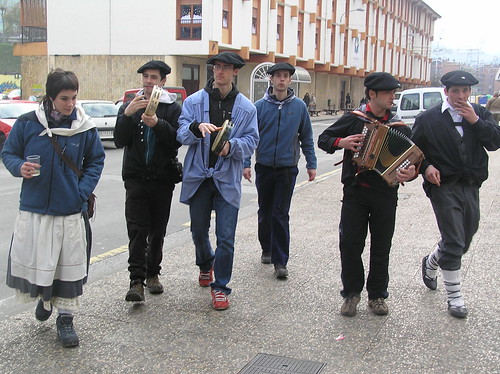Why Gabon’s coup plotters can count on popular support
Gabon #Gabon

The routine is now very familiar: the sudden putsch, the president confined, the nocturnal statement by new, camouflaged rulers. Today it is the turn of Gabon to wake up to find a military coup has brought sudden and unexpected political upheaval in a country that had been considered relatively stable.
On this occasion, the men in uniform introduced themselves as members of the Committee of Transition and the Restoration of Institutions. If successful, the coup will be the eighth in west and central Africa since 2020 to lead to a violent – or at least coerced – change in regime. The most recent was last month in Niger.
Soldiers have also seized power in Mali, Guinea, Burkina Faso, Chad and Sudan in the past two years. Now other leaders of Gabon’s neighbouring states will feel threatened – notably Denis Sassou Nguesso in Congo-Brazzaville – and with some justification.
So far, the ousting of Ali Bongo Ondimba as president after 14 years in power appears to have significant popular support, although it is difficult to tell so early. This would not be surprising. Many of the military coups in recent years have been greeted by enthusiastic public celebrations. Some have been organised for the media to win swift legitimacy, but many have been spontaneous outbursts of excitement at the simple prospect of change.
Few doubt Gabon needed a shake-up. The president inherited power from his father, who ruled from 1967 until his death in 2009. Gabon, a member of the Opec oil cartel with a production of 181,000 barrels of crude a day, should be relatively prosperous. Yet the quality of life of the vast proportion of its 2 million inhabitants speaks volumes about the decades of mismanagement, clientelism, corruption and blatant political rigging that the Bongo dynasty brought.
The exact motivation for the takeover will soon become clear. It is unlikely to be the protection of Gabon’s institutions from security or other threats, as the new apparent rulers claimed in their first address. The lack of concerted regional, African or global response to the other recent coups is likely to have been a major factor in the soldiers’ decision to gamble their lives and livelihoods on a grab for power.
This failure has been more obvious than ever in recent weeks. Threats of military intervention from Ecowas, the west African regional bloc, have yet to help restore Mohamed Bazoum, the democratically elected president of Niger ousted in July, and sanctions are not having much effect either. Military regimes in Mali and Burkina Faso appear entrenched. And in Sudan, the biggest threat to the military factions that seized power in 2021 is one another.
Gabon: junta leader named amid celebrations while former president pleads for help – video report
In the case of Gabon, the military can count on popular support and that of the opposition. A recent United Nations development programme survey of thousands of people living in countries where coups had recently occurred found strong democratic aspirations. This is true elsewhere, too, and is being reinforced as Africa becomes more urban and educated. But above all, there is a desire for change as soon as possible – even if this means it comes wearing combat fatigues.
There is a wider trend to watch as well. Many of the recent coups are in former French colonies, and one cause is undoubtedly the revived memory of a long, exploitative period of rule from Paris. Africa watchers have long worried about the inherent instability of the system left by France after it ended its direct colonial control across a swath of the continent. This toxic mix of political manipulation, financial control, military intervention, extractive commercial enterprise and cosy relations between elites is far from unique to Francophone Africa but is very entrenched there, even today.
Gabon, too, was a French colony – as recalled by Emmanuel Macron when he met the French-educated Bongo in Paris in late June. The photos of the two presidents shaking hands may not have done either much good.
Every coup is different but many outcomes resemble one another. The new leaders of Gabon will almost certainly follow the same path as their counterparts farther north and announce a “transition period” before new elections, which will not be held for a long time. In the meantime, tearful pleas by Bongo from his official residence, to which he is now confined, for supporters to “make some noise” are likely to fall on deaf ears.